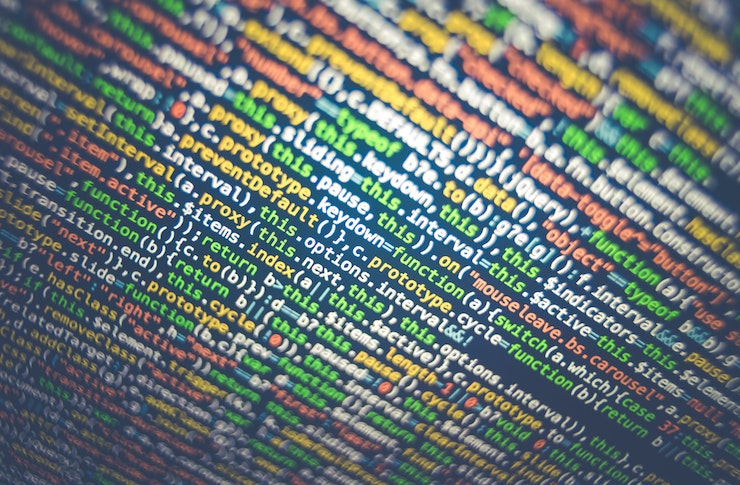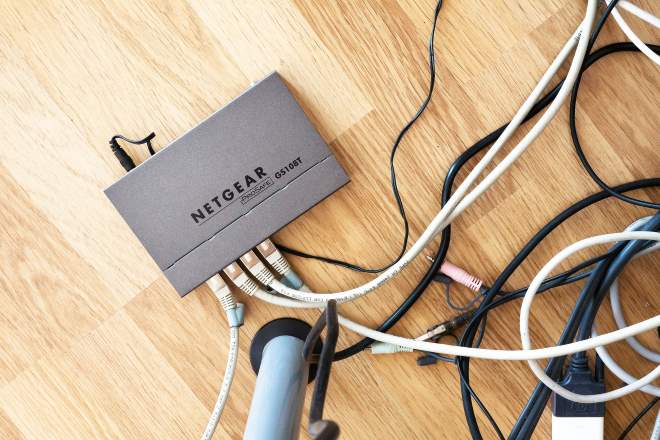5 Industries That Need to Take Extra Precautions When It Comes to Cyber Security
Data! The world’s new currency is not Bitcoin or Ethereum or Dollar or Pound but data. With the world being constantly digitized, every person has become a part of some company’s database. Your personal information, your buying behaviors, your bank account details, etc. are all sensitive information that is stored in a server like money in a bank.

Just as we keep money in our lockers to keep it safe, the same way it is absolutely essential that we take necessary steps to stay protected against data breaches. As per Statista, approximately 15 million records of data were leaked through data breaches in the third quarter of 2022. This figure is 37% higher compared to the previous quarter. Hackers and cybercriminals have become a serious threat in the past couple of years and that are some industries that we covered below that are high targets for these criminals.
Banking & Financial Services
The Banking Sector has been one of the favorites and most lucrative targets for hackers. A breach in this sector can lead to both financial and identity theft which can cause serious damage to both the organization and its customers. Fake apps, poor cybersecurity measures, and an upsurge in mobile banking, such instances have become fairly common. Using malware and viruses, hackers infiltrate the server and rob the organization of its data containing sensitive information like bank account numbers, credit card information, transaction details, etc.
Banks, credit unions, and other financial institutions must make sure that customer information is secure and secret, that procedures are in place to prevent unauthorized access to information, and that consumer and customer information is disposed of properly. Financial institutions need to up their cyber security game and place some high-end security measures such as firewalls and high-end encryption to protect their database from any criminal activity.
Government Agencies
The last thing anybody would want is for the government to get robbed. Government databases are the most sensitive as they contain highly confidential information and a single breach can cause a huge catastrophe. Think about the kind of data the government has, whether it is about its military, its own foreign deals, the data of its citizens, etc. Getting a hold of a single piece of information can create havoc, and this is why cyber attackers are so attracted to hacking government databases. That is why there has been active recruitment of hackers by terrorist and criminal organizations as well.
Governments all over the world have understood the severity of this threat and so there has been active investment by the public sector in the field of security and software development to strengthen their servers and protect your databases from such attacks.
Healthcare Sector
For many reasons, the healthcare industry has always been a target for cyberattacks. First off, with a $3 trillion market, the healthcare sector is a top target for cybercriminals seeking huge rewards. Second, the healthcare sector has access to a vast amount of private data, including Social Security numbers, insurance information, and medical records.
Such information is extremely important to cybercriminals who can use it to steal prescription drugs, run insurance scams, and commit identity theft. As an alternative, they may merely sell medical records on the underground market to the highest bidder. Attackers may threaten to permanently erase or divulge private information if the ransom is not paid.
Although this industry’s stringent compliance rules are designed to find any exploitable weaknesses, healthcare organizations must lock down their networks and systems to ensure HIPAA compliance and safeguard digitally protected health information (ePHI).
Education Sector
This industry has come into the limelight since the advent of the Covid-19 Pandemic. With schools and colleges closing down and people living in quarantine, there has been a huge upsurge in online education and distance education learning. The number of online courses sold during the pandemic has been spectacular and has attracted everyone’s education including cyber attackers. With education institutions moving to online classes, more and more data have been stored in servers. Sensitive data such as student profiles, important documents like exam papers, or even online payment details are extremely attractive to criminals and so this sector has been on their radar for a while now.
Due to the lack of proper cyber security in educational institutions, they have been easy targets for attackers but various institutions have understood the importance of protecting their databases and have started putting systems in place to keep their servers secure.
Retail Industry
Fraud has long been a problem in the retail industry. In this digital day and age, these scams have turned digital as well. One of the most common types of attack is what we call a DDOS attack where the hacker overloads the target’s website with excessive-high traffic thereby exhausting the server’s ability to protect itself.
Just like education, online shopping has been on a boom ever since the pandemic hit us in 2020. Ecommerce Giants like Amazon, eBay, etc. have seen a huge growth in demand. However, online shopping has also led to a creation of a huge database held by these e-commerce giants that consists of our personal details like our addresses, contact details, buying patterns, and some crucial information like our bank details, credit card information, etc. Such information is a goldmine for anyone who plans to misuse it. Apart from the obvious financial fraud risk that all of us face, any person who plans to sell such information on the black market can make a killing out of it.
Companies and governments all around the world are preparing to combat these criminals by creating anti-hacking software, recruiting additional cybersecurity specialists, etc. as a result of the continual rise in cyberattacks.
But we also need to exercise personal vigilance in order to deter such crooks. Stop transacting on unsafe websites, and do not divulge your OTP or pin number to anyone, even if the caller claims to be from your bank. Create strong passwords and avoid using public Wi-Fi networks to access sensitive information.




